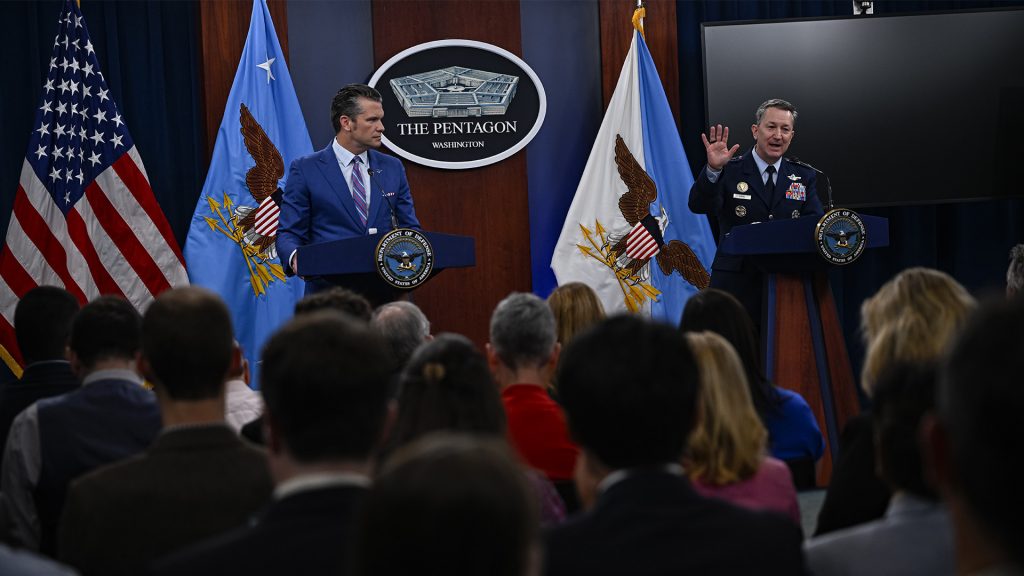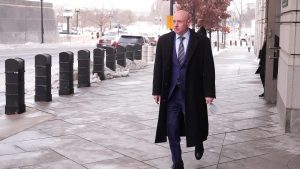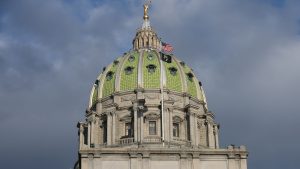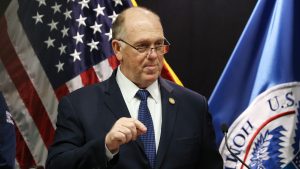DOD press restrictions echo Pentagon Papers controversy over press freedom

The Pentagon’s new press policy has sparked a rare, unified backlash from news outlets across the political spectrum, raising questions about the balance between national security and press freedom. Reporters from dozens of networks and publications have turned in their Pentagon press badges in protest, refusing to sign an acknowledgment of the new rules.
The standoff revolves around the government’s effort to prevent sensitive leaks, but a First Amendment law professor told Straight Arrow News that it’s not a journalist’s responsibility to stop them and recalled the significance of past leaks. One of the most significant moments in American press history was the Daniel Ellsberg Pentagon Papers case, which led the Supreme Court to protect the media’s right to publish certain information of public interest, even when the government considers it sensitive.
Journalists refuse to sign press policy
On Wednesday, reporters from dozens of networks and publications turned in their Pentagon press badges, rather than sign an acknowledgment of the new requirements. Defense Secretary Pete Hegseth said the signatures were meant to confirm journalists understood the rules, not that they agreed to follow them. Still, major news organizations stood in solidarity, declining to sign and giving up their access inside the Pentagon.
A Pentagon memorandum published by the New York Times outlines new “security requirements and new physical control measures.” Among the changes:
- Reporters now need an official escort to enter areas they previously accessed freely.
- Journalists must wear an additional, visible press identifier badge.
- Initially, the memo required all Defense Department information to be approved for public release “even if it is unclassified.” After pushback, that language was removed.
The New York Times reported the revised draft states, “Members of the news media are not required to submit their writings” before publication. However, the memo warns that any reporter who ‘encourages government officials to violate the laws and policies concerning the disclosure of such information’ could be deemed ‘a security risk.’”
In plain terms, while Pentagon employees are already restricted from sharing sensitive information, the new policy extends potential punishments to journalists, preventing them from seeking certain information from Pentagon or military employees.
Hegseth defended the policy during a cabinet meeting on Tuesday.
“If they signed on to the credentialing, they’re not going to try and get soldiers to break the law by giving them classified information, so it’s common sense stuff, Mr. President, and we’re trying to make sure national security is respected and we’re proud of the policy,” Hegseth said.
Press freedom vs. national security
Susan Seager, a media law and First Amendment law professor at the University of California, Irvine, said the media’s response is unprecedented.
“I haven’t heard anything where the press is so united against a government policy. I don’t know of anything like this,” Seager said.
She noted that the government has long sought to prevent leaks.
“Some of the most important news stories in American history are leaks by people unauthorized to speak to the press, and yet they did. And I’m thinking of the Daniel Ellsberg case.”
In 1971, Daniel Ellsberg leaked the Pentagon Papers, a top-secret Defense Department study showing the U.S. government had misled the public about the Vietnam War. “As a result of these leaks that were unauthorized by the government, the American people learned the Vietnam War was a complete disaster, the presidents knew we were never going to win that war, and it helped the American people learn we were never going to win that war and led to us pulling out of that war.”
The Nixon administration attempted to block publication, but the Supreme Court ruled in favor of the press, holding that “national security” alone could not justify prior restraint.
“The government can go to court and stop publication if they can prove there’s actual danger to human life,” Seager added. “It’s an extremely high bar; the court has never affirmed any kind of prior restraint, never allowed the government to stop publication.”
A double-edged sword
Government leaks can be described as a double-edged sword. While they shed light on government actions and hold officials accountable, they can also threaten national security if sensitive information falls into the wrong hands.
The new Pentagon guidance raises the question: Can the government extend these restrictions to reporters to prevent leaks? The media at large says no and have now vacated their Pentagon offices over the issue.
Seager noted that even with journalists leaving their Pentagon press passes in protest, coverage will continue.
“I don’t think it will inhibit their ability to report,” Seager said. “They can get on the phone, and they have sources they can reach through all sorts of means, not just being in the Pentagon.”
It remains unclear whether the Pentagon will adjust the guidance or whether news outlets will eventually sign the acknowledgment. For now, it is a standoff, and Pentagon press offices remain largely empty.
The post DOD press restrictions echo Pentagon Papers controversy over press freedom appeared first on Straight Arrow News.





